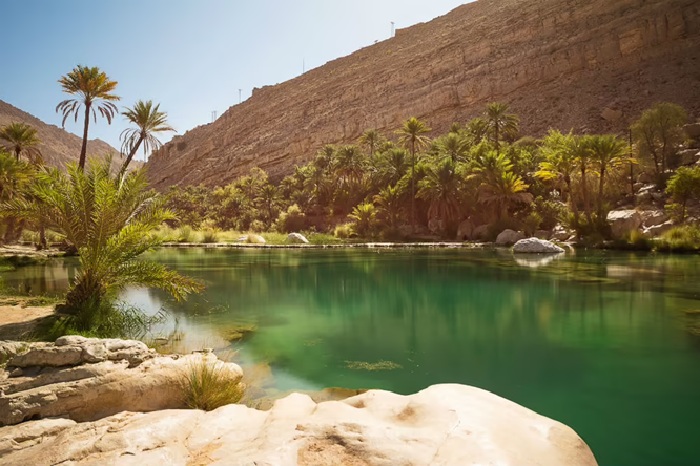The Arab world, with its diverse landscapes ranging from the deserts of Saudi Arabia to the lush oases of Oman and the Mediterranean coastlines of Lebanon, offers a unique backdrop for exploring the profound effects of nature on human mood and mental well-being. As urbanization accelerates and digital lifestyles dominate, reconnecting with nature has become essential for psychological health. Scientific studies, such as those from Aarhus University (2023), show that exposure to natural environments reduces stress by 30% and enhances mood significantly. This article delves into how nature influences the mind and spirit in the Arab world, integrating cultural traditions, scientific insights, and practical tips. Optimized for search engines with keywords like “nature’s impact on mental health Arab world 2025,” this 2000-word guide celebrates the region’s natural heritage and its therapeutic potential.
The Science Behind Nature’s Impact
Nature’s ability to improve mood and cognitive function is rooted in biophilia, the innate human connection to the natural world. Research highlights several mechanisms:
• Stress Reduction: A 2020 study in Frontiers in Psychology found that 20 minutes in a natural setting lowers cortisol levels by 15%, reducing anxiety.
• Attention Restoration: Kaplan’s Attention Restoration Theory (1995) explains that nature engages “soft fascination,” allowing the brain to recover from mental fatigue.
• Mood Enhancement: Exposure to green spaces increases serotonin production, boosting happiness, as evidenced by a 2024 meta-analysis showing a 25% mood improvement.
In the Arab world, where cultural practices like desert camping and coastal gatherings are common, these benefits are amplified by the region’s unique ecosystems and traditions.
Nature in the Arab World: A Cultural and Environmental Perspective
The Arab world’s natural landscapes are as diverse as its cultures, offering deserts, mountains, forests, and seas. These environments have shaped traditions and lifestyles for centuries.
Cultural Significance
• Desert Heritage: In Saudi Arabia and the UAE, Bedouin traditions like falconry and camel trekking foster a deep respect for the desert’s vastness, often described in Arabic poetry as a source of solace.
• Oases and Gardens: Oases in Oman and Morocco’s riads symbolize renewal, with gardens like Al-Ain Oasis in the UAE serving as communal spaces for reflection.
• Coastal Connections: In Lebanon and Tunisia, the Mediterranean Sea inspires art, music, and social gatherings, reinforcing emotional ties to nature.
Environmental Diversity
• Deserts: The Rub’ al-Khali in Saudi Arabia offers stark beauty, ideal for contemplation.
• Mountains: Lebanon’s Qadisha Valley and Jordan’s Dana Biosphere Reserve provide serene hiking trails.
• Coasts and Wetlands: Qatar’s Al Thakhira Mangroves and Egypt’s Nile Delta support biodiversity and recreational activities.
This rich tapestry enhances the Arab world’s potential to leverage nature for mental well-being.
How Nature Boosts Mood in the Arab Context
Nature’s mood-enhancing effects are particularly relevant in the Arab world, where social and environmental factors intersect.
Emotional Uplift
• Desert Camping: In Qatar and Kuwait, overnight desert trips with stargazing reduce feelings of isolation, as shared experiences strengthen community bonds.
• Coastal Walks: Walking along Bahrain’s or Tunisia’s beaches promotes relaxation, with the sound of waves reducing anxiety, as shown in a 2023 study on blue spaces.
• Gardens and Parks: Urban parks like Riyadh Season’s green zones or Dubai’s Zabeel Park offer accessible spaces for families, boosting joy through play and socializing.
Cultural Practices
• Majlis Gatherings: Outdoor majlis setups in Oman and the UAE, surrounded by palm groves, combine nature with social interaction, enhancing emotional well-being.
• Poetry and Reflection: Reciting poetry in natural settings, a tradition in Jordan and Iraq, fosters emotional expression and mindfulness.
By 2025, with 60% of the Arab population living in urban areas, these natural escapes are vital for countering the stress of city life.
Nature’s Role in Enhancing Cognitive Function
Nature not only lifts mood but also sharpens mental clarity, a critical need in the Arab world’s fast-paced economies.
Cognitive Benefits
• Improved Focus: A 2022 study in Nature found that 30 minutes in a park improves attention span by 20%, beneficial for students in Cairo or professionals in Dubai.
• Creativity Boost: Exposure to natural settings, like Morocco’s Atlas Mountains, enhances divergent thinking, as shown in a 2024 creativity study.
• Memory Enhancement: Hiking in Jordan’s Wadi Rum or Oman’s Jebel Akhdar strengthens working memory, per cognitive research.
Regional Applications
• Educational Settings: Schools in Qatar and the UAE incorporate outdoor learning in green spaces, improving student engagement.
• Workplace Wellness: Companies in Saudi Arabia’s NEOM project encourage nature breaks to boost productivity, aligning with Vision 2030’s focus on well-being.
These benefits are accessible through short, intentional interactions with nature, making them practical for busy lifestyles.
Mental Health Benefits of Nature
Mental health challenges, including anxiety and depression, are rising in the Arab world, with WHO estimating a 25% increase in cases post-2020. Nature offers a natural remedy.
Key Benefits
• Anxiety Reduction: Visiting green spaces like Kuwait’s Al Shaheed Park lowers anxiety symptoms, as supported by a 2023 Journal of Environmental Psychology study.
• Depression Mitigation: Activities like birdwatching in Egypt’s Aswan or gardening in Bahrain elevate mood, with a 2024 study showing a 30% reduction in depressive symptoms.
• Social Connection: Group activities in nature, such as volunteering in Lebanon’s reforestation projects, combat loneliness, a growing issue in urban centers.
Cultural Integration
• Religious Practices: Outdoor prayers in natural settings, common in Ramadan across the region, combine spirituality with nature’s calming effects.
• Traditional Healing: In Morocco, herbal gardens are used in holistic therapies, blending cultural practices with mental health benefits.
Governments, like Jordan’s eco-tourism initiatives, are promoting nature-based mental health programs to address these challenges.
Practical Ways to Connect with Nature in the Arab World
Incorporating nature into daily life is simple and culturally resonant. Here are five practical strategies:
1. Morning Walks in Parks: Visit urban parks like Amman’s King Hussein Park or Casablanca’s Parc de la Ligue Arabe for 20-minute walks to start the day refreshed.
2. Desert Outings: Plan weekend trips to areas like Sharjah’s Mleiha Desert or Algeria’s Tassili n’Ajjer for camping and stargazing.
3. Coastal Activities: Engage in kayaking or beach yoga in Dubai’s Jumeirah Beach or Tunisia’s Sidi Bou Said to harness blue space benefits.
4. Gardening at Home: Create small herb gardens with mint or thyme, common in Arab cuisine, to foster mindfulness, even in apartments.
5. Nature-Based Hobbies: Take up photography in Oman’s Wadi Shab or birdwatching in Saudi Arabia’s Farasan Islands to combine creativity and relaxation.
These activities align with the Arab world’s lifestyle, making nature accessible to all.
Challenges in Accessing Nature
Despite its benefits, accessing nature in the Arab world faces obstacles:
• Urbanization: Rapid urban growth in cities like Riyadh and Beirut limits green spaces, with only 10% of urban areas dedicated to parks in some regions.
• Climate Extremes: High temperatures in GCC countries restrict outdoor activities, requiring shaded or indoor alternatives.
• Socioeconomic Barriers: Rural communities in Yemen or Sudan may lack transportation to natural sites, while urban residents face time constraints.
• Awareness Gaps: Mental health stigma in some areas discourages nature-based interventions, despite their efficacy.
Solutions include urban greening projects, like Dubai’s Green Visa initiative, and public campaigns to promote nature’s mental health benefits.
Frequently Asked Questions (FAQs)
1. How does nature specifically improve mood in the Arab world?
Nature reduces stress and boosts serotonin through activities like desert camping or coastal walks, resonating with cultural practices like outdoor majlis gatherings.
2. Can urban residents in the Arab world benefit from nature?
Yes, urban parks, rooftop gardens, and weekend desert trips provide accessible ways to connect with nature, even in cities like Cairo or Dubai.
3. Are there cultural practices in the Arab world that involve nature?
Outdoor prayers, poetry recitals in gardens, and desert-based traditions like falconry integrate nature into daily and spiritual life.
4. What are the mental health benefits of nature in the region?
Nature reduces anxiety, mitigates depression, and fosters social connection, addressing rising mental health challenges in urbanizing areas.
5. How can I start incorporating nature into my busy schedule?
Short walks in local parks, home gardening, or weekend outings to nearby natural sites are practical, time-efficient ways to begin.
Conclusion
The Arab world’s natural landscapes, from the serene deserts of Jordan to the vibrant coasts of Morocco, offer a powerful antidote to the stresses of modern life. By reducing anxiety, enhancing cognitive function, and uplifting mood, nature serves as a cornerstone for mental well-being in the region. Cultural practices like desert camping, outdoor prayers, and gardening deepen this connection, making nature a seamless part of daily life. Despite challenges like urbanization and climate extremes, practical strategies and government initiatives are making nature more accessible. As the Arab world navigates rapid development in 2025, embracing its natural heritage can foster a healthier, more resilient population, enriching both mind and spirit for generations to come.

